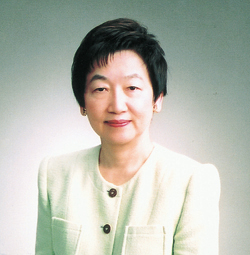

Currently a large number of problems such as poverty, conflict,
terrorism, infectious diseases, and environmental issues are accumulating, primarily
in the developing countries. In this context, the international community is
strengthening its efforts toward the realization of the Millennium Development
Goals adopted in 2000. With the changes in the international environment following
the end of the Cold War, the new development issues and concepts such as peace-building
and human security have started to attract attention and actually a new situation
has appeared where a perceptional change is required such as assistance for
the reconstruction of Iraq.
Meanwhile, the domestic economic and fiscal situation is severe in Japan, so
there is increasing necessity of gaining the public support and understanding
for ODA. From this perspective, I have been vigorously pursuing ODA reform since
my appointment as Minister for Foreign Affairs in February 2002.
Based on these new realities surrounding ODA, the solution we have come up with
concerning what ODA should be in future is the revised ODA Charter, approved
by the Cabinet in August 2003. The ODA Charter is a policy document that clarifies
the philosophy behind Japanese ODA policies and comprehensively describes the
results and direction of ODA reforms. The government is endeavoring to increase
the strategic aspect, flexibility, transparency, and efficiency of ODA through
the steady implementation of the revised ODA Charter. The government intends
to work improve Japanese assistance by obtaining the wide-ranging participation
of the Japanese public.
This year’s ODA White Paper, based on the fact that the ODA Charter
has been revised for the first time in 11 years, explains the background to
the revision of the ODA Charter, and the content and the recent status of implementation
of the revised ODA Charter and we have taken care to describe in a clear and
understandable manner, the direction of Japan’s ODA that the revised ODA
Charter aims to achieve. Along with these explanations, case studies of the
utilization of Japan’s experience and expertise, such as the activities
of senior volunteers, emergency medical assistance by Japanese NGOs, and the
dissemination of Maternal and Child Health Handbooks are taken up and concretely
introduced in the ODA White Paper. I would be pleased if this white paper could
be of any service in deepening understanding of the development issues of developing
countries and Japan’s ODA.
April 2004
 |
|
Yoriko Kawaguchi |